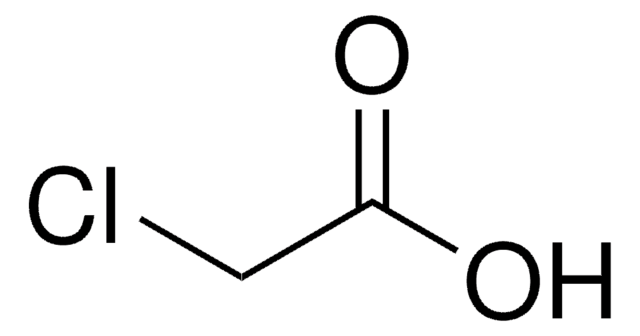1613407
USP
Sodium acetate
United States Pharmacopeia (USP) Reference Standard
Synonym(s):
Acetic acid sodium salt
About This Item
Recommended Products
grade
pharmaceutical primary standard
API family
sodium acetate
form
solid
autoignition temp.
1112 °F
manufacturer/tradename
USP
pH
8-9.5
pKa
4.76 (acetic acid)
mp
>300 °C (dec.) (lit.)
application(s)
pharmaceutical (small molecule)
format
neat
SMILES string
[Na+].CC([O-])=O
InChI
1S/C2H4O2.Na/c1-2(3)4;/h1H3,(H,3,4);/q;+1/p-1
InChI key
VMHLLURERBWHNL-UHFFFAOYSA-M
Looking for similar products? Visit Product Comparison Guide
General description
Application
Analysis Note
Other Notes
Storage Class Code
11 - Combustible Solids
WGK
WGK 1
Flash Point(F)
Not applicable
Flash Point(C)
Not applicable
Regulatory Listings
Regulatory Listings are mainly provided for chemical products. Only limited information can be provided here for non-chemical products. No entry means none of the components are listed. It is the user’s obligation to ensure the safe and legal use of the product.
JAN Code
1613407-1G:
Certificates of Analysis (COA)
Search for Certificates of Analysis (COA) by entering the products Lot/Batch Number. Lot and Batch Numbers can be found on a product’s label following the words ‘Lot’ or ‘Batch’.
Already Own This Product?
Find documentation for the products that you have recently purchased in the Document Library.
Customers Also Viewed
Our team of scientists has experience in all areas of research including Life Science, Material Science, Chemical Synthesis, Chromatography, Analytical and many others.
Contact Technical Service








